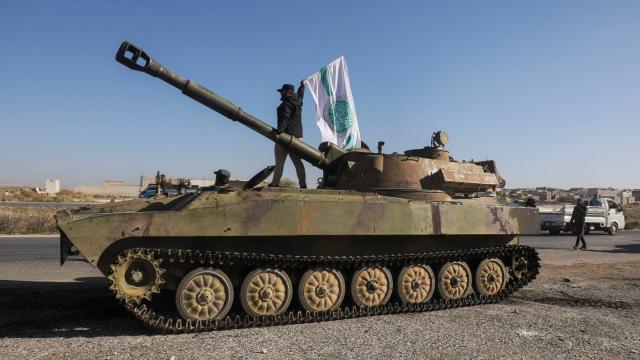The conflict in Syria has created a tense standoff between two major global powers: the United States and Russia. The city of Aleppo, once Syria’s largest city and a key economic hub, has become a focal point in the ongoing struggle for influence over Syria’s future. Aleppo’s strategic importance, combined with its symbolic value, has made it a central battleground. This is not just a local conflict—it’s a place where the interests of world powers clash, and their actions could have significant consequences for millions of people.
The Aleppo’s Battle and Its Importance
Aleppo’s strategic value is immense. Located in the north of Syria, it has historically been a vital city for trade and industry. During the civil war that began in 2011, Aleppo became a symbol of the country’s internal conflict. For years, it changed hands multiple times between Syrian government forces and opposition groups, resulting in massive destruction. Aleppo is also strategically located near the Turkish border, making it a significant area in terms of both military strategy and the humanitarian crisis that has followed.
In 2016, after months of intense fighting, Syrian government forces, supported by Russian airstrikes, managed to take full control of Aleppo. This victory was seen as a major turning point in the war, as it allowed the Syrian government to regain control over a vital part of the country. However, the United States and its allies, which had been supporting rebel forces, did not view this as a victory. For the US, the Syrian government’s control over Aleppo represented a step backward in efforts to replace President Bashar al-Assad, whom the US has long wanted to see removed from power.
As a result, tensions between the US and Russia over Aleppo have remained high, with both countries supporting opposing sides in the conflict. Russia, as a key ally of the Syrian government, has used its military might to support Assad, including airstrikes and military advisors. The US, on the other hand, has supported various opposition groups in an attempt to weaken the Assad regime and push for a political transition.
Russian Influence and US Opposition
Russia’s involvement in Syria is rooted in its desire to maintain a strong presence in the Middle East, a region of strategic importance. The Russian government sees Assad’s regime as a key ally, especially because Syria serves as a gateway to Russian influence in the region. By supporting Assad’s government, Russia is able to maintain a military base in the Mediterranean and prevent the spread of Western influence. This has allowed Russia to play a significant role in the conflict, often clashing with the US and its allies.
The US, on the other hand, has a long-standing policy of promoting democracy and opposing authoritarian regimes. As part of this, it has supported rebel groups in Syria, hoping to push for a change in government. However, the situation is far from simple. The US has also been concerned about the rise of extremist groups like ISIS in Syria, which has complicated its involvement. In the fight for Aleppo, the US and its allies tried to support opposition groups, but the government’s military, backed by Russian air support, proved too powerful.
As the battle for Aleppo intensified, the US began criticizing Russia for what it described as indiscriminate airstrikes that targeted civilians. The US also accused Russia of violating international law by bombing civilian areas and not doing enough to protect innocent lives. This was especially concerning given the scale of the destruction in Aleppo. The United States and its allies have called for greater accountability from Russia, which has repeatedly denied these accusations, stating that it is only targeting terrorist groups and supporting the legitimate Syrian government.
Aleppo’s Humanitarian Crisis and International Reactions
The conflict over Aleppo has resulted in one of the worst humanitarian crises in modern history. As fighting between government forces and opposition groups escalated, millions of civilians were caught in the middle. The city of Aleppo was subjected to heavy bombardment, which caused widespread devastation, leaving thousands of people without homes, food, or medical care. This has drawn international criticism and calls for a ceasefire, but peace talks have failed to bring about lasting solutions.
For the US, the situation in Aleppo represents the failure of its strategy in Syria. Despite its efforts to support rebel forces, the US has been unable to prevent the government from regaining control over key cities like Aleppo. Russia’s military support for the Syrian government has played a significant role in this. In response, the US has imposed sanctions on Russia, accusing it of war crimes and human rights violations. These sanctions have added to the already strained relationship between the two countries.
Aleppo’s Struggle: A Geopolitical Battlefield
In addition to the US and Russia, many other countries have involved themselves in the situation, either by supporting one side or calling for peace. The United Nations has led efforts to provide humanitarian aid, but the ongoing fighting has severely limited access to areas like Aleppo. Many international organizations have condemned the violence, and there have been calls for both Russia and the US to work together to find a solution. However, with both countries having opposing interests, finding common ground has proven to be a major challenge.
The Aleppo’s situation highlights the complexity of the Syrian conflict. It is not just a battle between two sides within Syria, but a larger geopolitical struggle involving global powers. As both the US and Russia continue to pursue their own interests in Aleppo, the people of Aleppo and Syria as a whole continue to suffer the consequences of a war that seems to have no end in sight.

